
How IHI projects are positioning Europe as a leader in theranostics, a new innovative treatment for highly aggressive cancers
Get the latest updates on our calls for proposals and other activities, plus news and results from our projects.

How IHI projects are positioning Europe as a leader in theranostics, a new innovative treatment for highly aggressive cancers
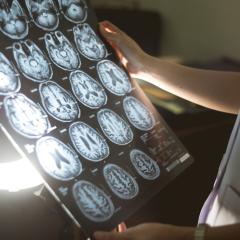
IHI held a workshop in 2025 examining project outcomes, challenges and opportunities regarding neurodegenerative diseases in Europe.

iCARE4CVD has delivered an innovative new tool to harmonise data in the cardiovascular disease field, a key step towards advancing more personalised care.

A report investigating IMI and IHI research publications indicates that one-third of IMI papers are within the top 10% most cited papers in their field.

Get ahead of the game and use the draft call text to start preparing your proposal and building your consortium.
EDENT1FI and INNODIA have taken part in the development of a set of recommendations for policymakers.

The new project will generate resources to help people with chronic conditions to manage their treatment in ways that fit their lifestyles and needs.

Surprisingly little is known about which medicines can be taken safely by pregnant and breastfeeding women, or what the potential side effects of various medications can be. The...

The project plans to deliver a framework to fast-track the development of biomarkers for identifying the patients most likely to benefit from certain cancer treatments.

The study was made possible thanks to EHDEN’s work on harmonising more than 350 million real-world health data records.

We publish the draft topics ahead of the call launch to give applicants extra time to start networking and preparing a proposal.

More than half of all patients don’t take their treatment properly. BEAMER’s B-COMPASS questionnaire will help doctors to rapidly decide how to present information to best suit the...

EuroHeartPath aims to improve the entire care pathway for cardiovascular diseases by identifying best practices and facilitating the integration of cutting-edge innovations.

IHI call 12, which is scheduled for launch in early 2026, will invite applicants to explore new opportunities for IHI projects in the IHI Strategic Research and Innovation Agenda.

The minimum effective dose of an off-label diabetes treatment for children and young people was successfully established using an adaptive trial designed by INNODIA.

PREDICTOM study reveals slowdown in communication between different brain regions from the earliest stages of Alzheimer’s disease.
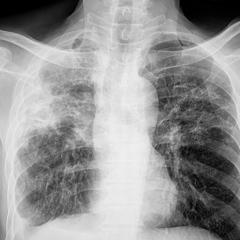
A promising and much-needed tuberculosis (TB) treatment is advancing through clinical trials thanks to support from European partnerships IMI2 and EDCTP.

The GREG project plans to advance the use of real-world data and evidence in the development and evaluation of medicines and medical devices.
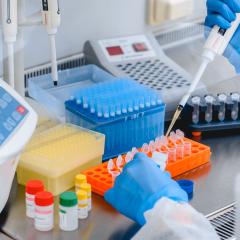
The new project is advancing biomarkers that would improve the care of people living with HIV and hepatitis D, plus stem cell transplant patients at risk of cytomegalovirus (CMV).

Involving patients as co-designers of health research strengthens the impact that project outcomes ultimately have.
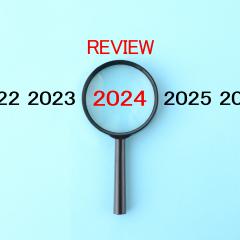
Want to find out what IHI got up to in 2024? Read our brochure for a taste of our main achievements.

PROMINENT and AD-RIDDLE, two projects focusing on Alzheimer’s disease, are channelling health economics to ensure that new therapies and diagnostic methods for Alzheimer’s disease...

GRACE is a new IHI project that aims to deliver a smoother care pathway for cardiovascular diseases, from diagnosis to treatment and long-term management.

IHI is launching a new call for proposals; IHI call 11 has topics on brain disorders, type 1 diabetes, the links between infectious and chronic diseases, and more.

The paper, by authors from IHI and the Critical Path Institute, highlights the importance of a structured, strategic approach to regulatory issues from the beginning.

Philanthropic organisations are contributing significantly to IHI call 11. Here, they explain why IHI is well placed to enable public, private and philanthropic partners to work...

New IHI project SHERPA focuses on interventional radiologists, who use imaging technologies to guide miniature devices through a patient’s body.

IMI and IHI projects are tackling the environmental impacts of the sector, from the use of water, energy and raw materials to pollution and waste management.

Up until fairly recently, women were largely left out of clinical trials and there are still gaps in what we know about women’s health. IHI and IMI projects are investigating safe...

Children with cancer can’t wait for new drugs. ITCC-P4 is accelerating how quickly they come to the market.

IHI call 11 offers researchers the opportunity to get involved in projects on topics as diverse as diabetes, brain dysfunction, pharmacovigilance, surgery, infectious diseases.

IHI and IMI projects are enhancing the environment in Europe for conducting clinical trials by connecting relevant sites and experts, investigating new trial designs and protocols...

IMI and IHI projects are boosting paediatric research and development, writes IHI’s Nathalie Seigneuret in Frontiers in Medicine.

New IHI project INTERCEPT aims to transform Crohn’s disease from an incurable condition to one that could be managed and even potentially prevented.

The Gambian Pertussis Study (GaPs) is the first study to provide comprehensive immunological data comparing vaccine regimes in pregnancy and infancy.

New IHI project ENKORE aims to tackle the environmental impacts of the health sector by developing an eco-design framework for single-use medical devices and their packaging.
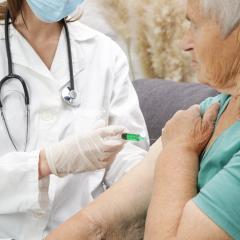
The VITAL project published an educational platform as well as a toolbox to boost vaccination uptake amongst older people.
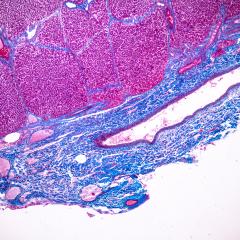
This World Liver Day, discover how IHI and IMI projects are revealing more insights into liver disease and how best to treat it.

The new project aims to support the inclusion in clinical trials of underrepresented groups, a move that will both help address health disparities and enhance research quality.

Diabetes, brain disorders, heart disease and medicines safety are among the topics slated for inclusion in the next IHI call for proposals.

This World Health Day, find out how our projects are helping mothers and newborns.

How can IHI and IMI projects harness the opportunities posed by real-world data and AI to make Europe a leader in digital health?
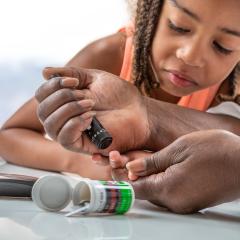
The IHI EDENT1FI project is cooperating with the Italian government as new screening programmes to detect type 1 diabetes in children and teenagers are rolled out.
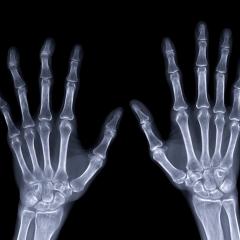
People with arthritis regularly undergo scans; now a new IHI project will deliver resources to boost the usefulness of the resulting images to both patients and physicians.

Niklas Blomberg, IHI’s executive director, exchanged views with Members of the European Parliament from the SANT committee about how public-private partnerships like IHI can propel...

After the outbreak of the COVID-19 pandemic in 2020, several projects including the CARE consortium were funded by IMI to investigate pandemic preparedness. We sat down for a chat...
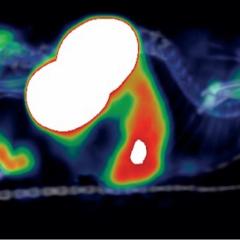
New tools developed by the Immune-Image project can indicate the presence of cells that inhibit immunotherapy.

The new IHI project aims to deliver tools and resources to facilitate the set-up and conduct of trials for rare and ultra-rare diseases while minimising the burden for patients.
The COMBINE project trained an AI model to improve the selection of compounds that can fight multi-drug resistant bacteria – a newly published peer-reviewed paper outlines how they...

IMI and IHI projects provide a neutral platform where public and private datasets can be shared within a secure environment. This means that IHI and IMI projects are the perfect...
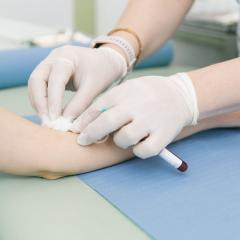
Project-COMFORT aims to make microsampling techniques, which collect minute amounts of blood and can be carried out at home, a standard part of healthcare.

The new IHI project will deliver practical tools and resources to support environmentally-sound decision-making when designing manufacturing processes.

The European Medicines Agency issued a third letter of support for the development of new biomarkers and clinical endpoints for a condition that blurs vision and can lead to...

We sat down with IHI Executive Director Niklas Blomberg to find out why IHI is piloting an applicant-driven approach in call 9, what IHI expects from applicants, and why IHI is...

The first Europe-wide platform study on the safety and efficacy of treatments for depression will use study designs from the IMI EU-PEARL project.

IHI call 9 invites applicants to explore IHI's research and innovation agenda for opportunities, while IHI call 10 features topics on PFAS, health data, and digital labels.

The IMI Sophia project identified five subgroups of people whose risk for obesity complications is not aligned with their body mass index (BMI).

NHPig plans to deliver knowledge and tools needed to reduce the use of non-human primates in non-clinical safety studies.


A report on bibliometrics demonstrated that IMI’s publication record is punching well above its weight, while IHI is on track to deliver strong results

The IHI Programme Office will be closed from 21 December 2024 to 2 January 2025 inclusive.

The texts of IHI calls 9 and 10 have been approved by the Governing Board and are available online.

The algorithms that translate walking patterns into indicators of health have been integrated by private companies EMPATICA, Clario, McRoberts and Actigraph into their products.

Three years since our launch, we are taking innovative approaches and continuing to deliver results from both IMI and IHI projects.

Antimicrobial resistance is a growing health threat across the world, but EU-funded scientists are working together to boost research and find new treatments.

We chatted to the VP of Ecosystem, Operations and Strategy of the PharmaLedger Association, Clarisse Dias da Mota, about the progress that’s been made since the PharmaLedger...
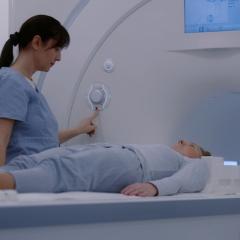
Thera4Care brings together diverse stakeholders with the aim of establishing an integrated, collaborative European ecosystem for theranostics.

The new project plans to develop innovative synthetic data generation and sharing solutions for use in biomedical research.
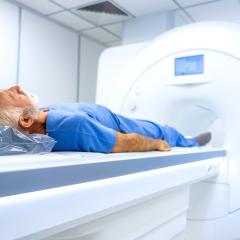
The project aims to make it easier to detect if patients are likely to benefit from a novel treatment, and deliver improved manufacture methods to minimise the risk of shortages.

The new IHI project aims to address gaps along the whole stroke care pathway, from diagnosis and emergency treatment, to rehabilitation and the prevention of further strokes.

We publish the draft topics ahead of the call launch to give applicants extra time to start networking and preparing a proposal.

The report summarises the discussions and main takeaways of the IHI Regulatory Science Summit held earlier in 2024.
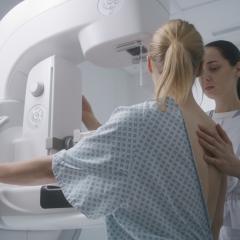
The new project aims to boost cancer care in Europe by advancing the development and manufacture of therapies and diagnostics based on the radioactive isotope astatine-211.

VICT3R will use existing data and artificial intelligence to create virtual control groups that could replace real animals in drug and chemical safety studies.

While previous IHI calls defined the challenges applicants should address, call 9 will invite applicants to identify untapped opportunities in the IHI Strategic Research and...
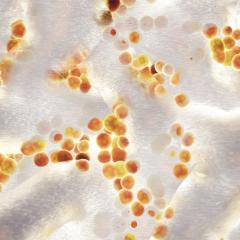
The AMR Accelerator is a proven model for the development of new antimicrobial drugs, experts say

A wide-ranging evaluation of IMI2 and IHI highlights the ability of the programmes to drive innovation and have an impact on patient care and quality of life.
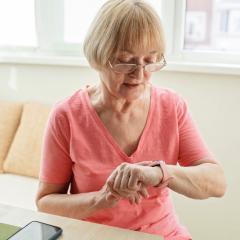
The results of a new study, published in Nature Medicine, could make life easier for people taking part in clinical trials by reducing visits to a clinic for in-person assessments.

Ultimately, SYNTHIA hopes to build trust regarding the usefulness of synthetic data and facilitate its responsible use by researchers.

VAC2VAC provided vital evidence to demonstrate that non-animal alternatives can reliably detect certain contaminants in medicines administered by injection.

Hitting the 200 project milestone shows the strength of the public-private partnership approach pioneered by the Innovative Medicines Initiative and built on by IHI.
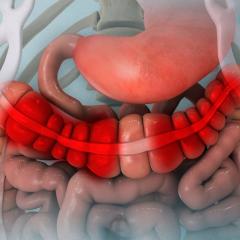
Drugs for IBD work in some patients, but not others. The Immune-Image project used imaging techniques to illuminate how the vedolizumab drug works in IBD patients, which could shed...

Health research collaborations mean sharing data – we can deliver faster if we identify and remove obstacles early, write IHI's Niklas Blomberg and EFPIA's Magda Chlebus.

The NECESSITY project carried out a study that showed that Sjögren’s patients can be categorised into three different subgroups, meaning that more personalised and better...

By placing patients at the centre of the system, IMPROVE should advance the use of patient-generated data in treatment decisions and research.
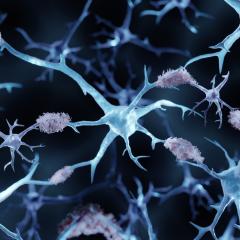
The IMI AMYPAD project robustly assessed a numerical scale from 0-100 that can be used to quantitatively compare brain scans of Alzheimer’s patients. The method received a...
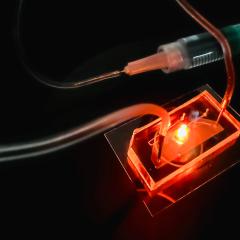
The project developed the first breast cancer-on-chip model tailored to cell therapy testing, specifically focused on safety and efficacy studies.

New to IHI and want to see what we’re all about? Our new brochure, IHI 2023 In Focus, outlines our main achievements in 2023.

IHI call 8 features topics on heart disease in cities, big data and arthritis, ‘regulatory sandboxes’, and how best to measure the impacts of a therapy on patients’ lives.

The RADAR-AD project put a group of elderly people into a smart home and used sensors to identify whether they had difficulties with basic daily tasks – which may indicate early...

Both the PharmaLedger and Gravitate-Health projects are developing solutions that will make it easier and safer for patients to access digital information about their medical...

We publish the draft topics ahead of the call launch to give applicants extra time to start preparing a proposal and building a consortium.

Transitioning from an IMI or IHI project to a non-profit association is one way to ensure the sustainability of project results. PharmaLedger and conect4children shared their...
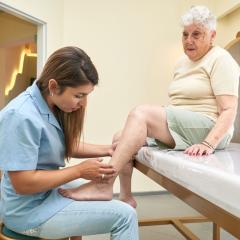
A new clinical trial testing the best administration route for an experimental arthritis treatment is using outcome measures established by IMI project RT-Cure to evaluate its...

The new IHI project’s state-of-the-art platform will help to advance research by driving innovative, real-world data collection from patients with rare neuromuscular diseases.

The 3TR project successfully identified gene expression pathways that could distinguish between people whose lupus was active versus people whose lupus was close to remission.

IMI-supported EMBLAVEO® drug is desperately needed, says infectious disease expert

We publish the draft topics ahead of the call launch to give applicants extra time to start networking and preparing a proposal.

The Inno4Vac project is leveraging advanced modelling techniques to improve vaccine stability, which can help to reduce vaccine waste.

A nasal vaccine against pertussis that was tested using a model and cell bank created by the PERISCOPE project is entering the final phases of clinical trials.

The Commission’s green light means this new treatment will soon be available for adult patients with serious infections caused by multidrug-resistant Gram-negative bacteria where...
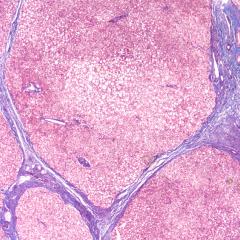
The new IHI project plans to set up a platform to identify people in the early stages of liver disease, when damage to the liver can be halted and even reversed.
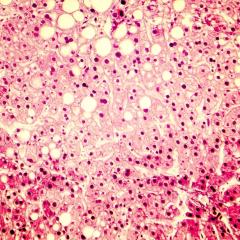
The GRIPonMASH project aims to transform the way we detect and diagnose a common, but little-known, liver condition dubbed MASLD.

The new IHI project aims to boost the use of non-invasive CT scans in the diagnosis and care of people with coronary artery disease.
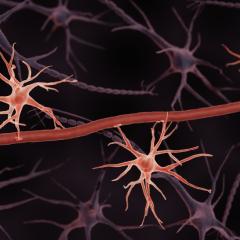
A new peer-reviewed paper used methods developed in the IM2PACT project to show that brain endothelial cells are enriched in genes that indicate a risk of Alzheimer’s disease

Read our guide to find out how to maximise the regulatory impact of an IHI/IMI project.

The EMA’s Committee for Medicinal Products for Human Use recommendation for marketing authorisation means we are one step closer to treating adult patients with complicated intra...

IHI’s Regulatory Science Summit provided a forum to discuss how IHI projects can help overcome current regulatory challenges and contribute to regulatory science

The consortium published a series of recommendations for how the regulatory process in the EU for approving cell and gene therapies could be sped up.
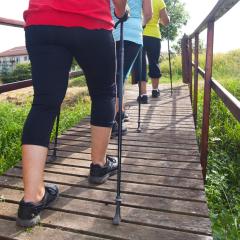
The new IHI project hopes its ‘toolbox platform’ will dramatically change the way we detect, diagnose, prevent and treat Alzheimer’s disease.

The papers in Frontiers in Neurology demonstrate how public-private collaborative research through IMI and now IHI is making a difference in the Alzheimer’s disease field.

The new IHI project aims to make intensive care units more peaceful for staff and patients alike by using smart technologies to cut the number of alarms.

The work illustrates the benefit of large datasets such as the EPND database to find important patterns in biological data.

The new IHI project wants to identify people at risk of dementia, before the first symptoms appear, when there is still time to take steps to slow the progress of the disease.
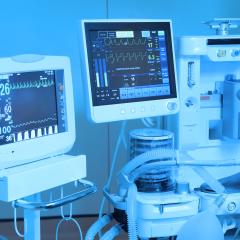
HEU-EFS aims to develop a harmonised approach to early feasibility studies (EFS) for medical devices in the EU, a key step in the early development of new devices.

For the International Day of Women and Girls In Science, we spoke to some of the women working with IHI and IMI to hear how funding organisations can help women to thrive.

New IHI project EDENT1FI aims to improve our ability to detect type 1 diabetes in children and adolescents before the body’s insulin-producing cells have been badly damaged.
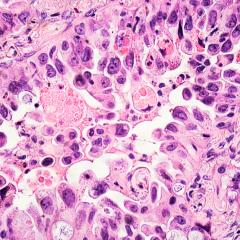
The CANCER-ID project applied molecular techniques to investigate whether mutant cells were causing patients to reject a commonly-used combination therapy for lung cancer.
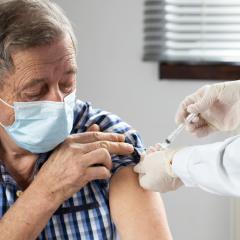
The VITAL project analysed and classified people according to their immune system profiles to evaluate their response to influenza vaccination.

The Children’s Tumor Foundation and the Global Coalition for Adaptive Research are making EU-PEARL’s model for a platform trial for patients with neurofibromatosis-1 (NF-1) and...

iCARE4CVD aims to facilitate a more personalised approach to cardiovascular disease care, from identifying those at risk right through to caring for people with advanced disease.

Niklas Blomberg, our new Executive Director, shares his story with us.

The Innovative Health Initiative (IHI) has launched two new calls for proposals, IHI calls 6 and 7, addressing a wide range of challenges in health research and innovation.
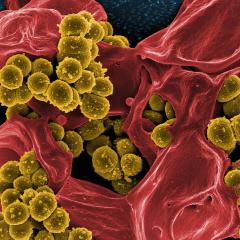
EU-backed researchers look into the most effective ways to minimise the spread of infectious diseases in healthcare environments.

The final versions of the topic texts for IHI calls 6 and 7 are available now; the calls will be launched in the next few days

Despite challenging conditions posed by the COVID-19 outbreak, the DRIVE project successfully tested how well various brands of flu vaccines worked across five European countries...

Tuberculosis (TB) is the world’s second leading killer infectious disease after COVID-19, wiping out 1.3 million people in 2022. Unfortunately, more and more patients with...

The IHI Programme Office will be closed from 23 December 2023 to 2 January 2024 inclusive.

Standardising data collection, analysis and reporting on medication exposure during pregnancy will accelerate the rate at which the associated risks can be evaluated.

IMI project SOPHIA has developed an online tool that allows patients and doctors to predict weight loss following bariatric surgery.

With the launch of the first IHI projects, the vision of a cross-sector, public-private research and innovation community is turning into a reality.

Updated versions of the draft topics for IHI calls 6 and 7 are available now on the Future Opportunities page. We hope to launch the calls early next year.

IMI project RHAPSODY has identified biomarkers associated with diabetes development and progression, findings that could lead the way to personalised treatments.
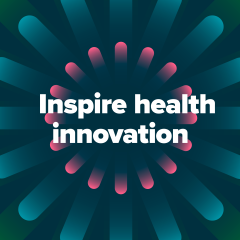
If you have an idea for IHI’s future research, we’d love to hear from you! Discover our Ideas Incubator and inspire health innovation at IHI.

IMI project FAIRplus has delivered a wealth of resources to help researchers ensure their data is FAIR – findable, accessible, interoperable, and reuseable.

Online tool allows scientists to monitor the numbers of people looking up respiratory syncytial virus (RSV) online – a useful indication of disease activity.

The draft texts of the topics slated for inclusion in IHI’s next calls for proposals are now available online.

Microbiome profiles in the sputum could indicate the severity and inflammatory patterns of asthma.

Patients who sign the agreement can both measure their own outcomes and control how their data is used for research.
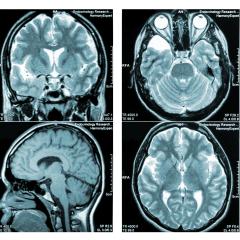
CLAIMS will develop an AI-based platform for multiple sclerosis patients that would help to predict the course of the disease and identify the best treatments for them.

BigData@Heart findings underscore importance of accounting for sex-based differences in medical research
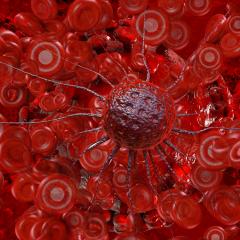
Following surgery to remove a tumour, blood tests could help to identify which patients really need further treatment, and which don’t.

IMI project ITCC-P4 addresses the urgent need for better tools to study childhood cancers
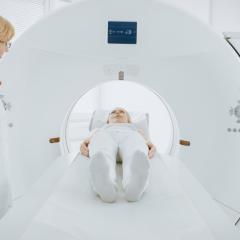
Research by IMI project AMYPAD reveals that carrying out a PET scan of the brain could result in a faster, more certain diagnosis for patients.

IMAGIO focuses on ‘interventional oncology’, which uses miniaturised instruments to target cancer cells more precisely, thereby sparing healthy cells.

The topics contribute to key EU policies such as the European Green Deal and the '3Rs' goals of replacing, reducing and refining the use of animals in research.

The project aims to set up a digital platform to improve the diagnosis and personalised treatment of people with Alzheimer’s plus other diseases.

Between them, IMI projects have produced almost 10 000 papers, and their quality matches their quantity, with many papers achieving high citation rates.

The app, developed by IMI project eTRANSAFE, makes it easier for researchers to analyse which biomarkers are being used in which clinical studies.

Results from the COMBACTE-CARE project show that – if approved – a new combination of drugs could help in the fight against some of the most dangerous drug-resistant bacteria.

The topics cover subjects as diverse as cutting animal testing in research, sustainability in healthcare, rare diseases, and equitable access to clinical research.

The 120 members of the pool include both patients and caregivers and have experience of a wide range of health issues.
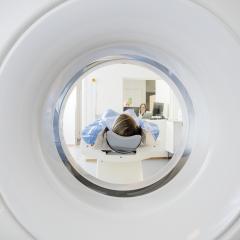
IDERHA will create an open health data platform that will facilitate the integration and analysis of diverse types of data, and use it to transform lung cancer diagnosis and care.

Dr Blomberg has worked in both research and leadership roles in Europe's life sciences sector, and is currently Director of ELIXIR, the life sciences data infrastructure.

By painting a detailed picture of the lung disease bronchiectasis in different European countries, the iABC project is helping to drive new research on the disease.

Addressing cancer and neurodegenerative diseases, and bringing on board sectors as diverse as pharmaceuticals, medical technology, big data and imaging, the projects exemplify IHI...

The topics cover subjects as diverse as sustainability in healthcare, rare diseases, and equitable access to clinical research. Registration for the IHI Call Days is also open.

The standards were developed by a multi-stakeholder group including people living with asthma as well as doctors, pharmaceutical companies, and health policymakers.

EPND's Cohort Catalogue will help to accelerate the hunt for biological markers of neurodegenerative diseases like Alzheimer's and Parkinson's diseases.

Using smartphones to self-report and monitor thinking difficulties could help to monitor and manage depression, according to new research from IMI project RADAR-CNS.

Three IMI projects have contributed to UroEvidenceHub, a platform that will provide physicians with personalised healthcare recommendations for patients with urological conditions.

Data gathered during IMI project DIRECT helped scientists to pinpoint genetic variants associated with a good response to diabetes drugs called GLP-1 agonists.
IHI is calling on patients and informal caregivers to apply to be part of a new IHI Patient Pool which will strengthen IHI’s ties with the patient community, and make it easier to...
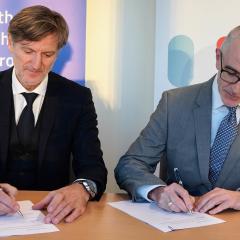
The two organisations have signed a Memorandum of Understanding that will facilitate collaboration and allow them to leverage their strengths, networks and expertise.

IDEA-FAST’s research involved people with neurodegenerative and inflammatory diseases, where fatigue can have a major impact on patients’ quality of life.

iConsensus draws on the agility and specialist knowledge of SMEs and the know-how of academic experts to make biological drug development faster, cheaper and more efficient.
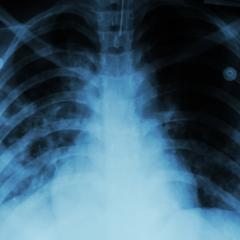
UNITE4TB explored how low- and middle-income countries can roll out the molecular diagnostic tests needed to determine the best course of treatment for people diagnosed with TB.
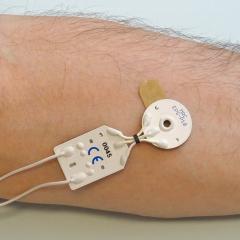
The IMI-PainCare project has developed a new electrode to investigate pain perception in a clinical recreation of chronic pain, a condition which affects 1 in 5 Europeans.

IMI project BIOMAP has uncovered previously unknown genetic factors associated with the onset of psoriasis, a disease that is characterised by red, scaly patches on the skin.
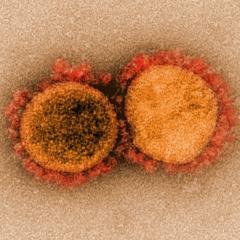
The project looked for compounds that stop the virus's spike protein from binding with the ACE2 receptor which is found on human cells and is the virus's main route of attack.

IMI project SOPHIA is shedding new light on the mechanisms that can cause type 2 diabetes in obesity, as well as the factors that keep some people with obesity diabetes-free.
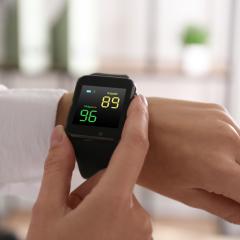
IMI projects are presenting results on remote clinical trials, patient information, health data, and real world evidence at the upcoming event.

IMI psoriatic arthritis project HIPPOCRATES is a great example of best practice for patient involvement in research, and it’s already seeing the benefits of its approach.
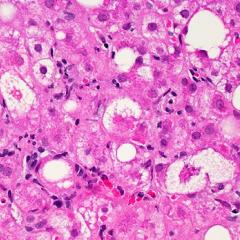
LITMUS is studying how simple blood tests or scans could replace surgical biopsies as a means to identify people with the liver disease non-alcoholic staetohepatitis (NASH).

IMI project c4c has pioneered an advice process involving diverse experts including patients to aid drug developers when designing paediatric clinical trials.

IMI project TransBioLine is identifying new markers that flag up when a medicine may be harmful to vital organs such as the liver or kidneys, for example.

Many people with diabetes experience hypoglycaemia, when blood sugar levels become too low. IMI project Hypo-RESOLVE is shedding new light on the condition.

The guidance influenced the work of IMI project EPAD, which used biomarker tests to collect data on the early stages of Alzheimer's disease.
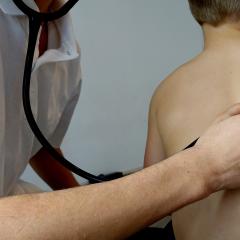
Research from IMI project PERISCOPE adds to picture of how infections and vaccines influence immune response.

The Innovative Health Initiative (IHI) has launched its third call for proposals, featuring topics covering rare diseases and mental health, and addressing challenges such as...

Prostate cancer is the second most common cancer in men and its diagnosis - and treatment - can take a toll on emotional and mental health.

IMI projects EBiSC2 and FAIRplus are ensuring that EBiSC's data is FAIR, i.e. findable, accessible, interoperable and reusable; this should ultimately help to accelerate research.

As we mark the Innovative Health Initiative’s first birthday on 30 November, we look back on what we have achieved so far, and offer a glimpse of our plans for the coming year.

Updated versions of the draft topics for IHI calls 3 and 4 have been published on the Future Opportunities page.
The Science Innovation Panel (SIP) is a new body set up under IHI to advise the Governing Board on a range of matters. In an interview with the IHI Programme Office, chair Anna...
The short brochure describes recent IMI project results in fields such as cancer, antimicrobial resistance, COVID-19 and more.

Laboratory studies show that a potential antibiotic dubbed NOSO-502 is active against some of the most dangerous drug-resistant bacteria. The next step will be to test it in humans...

The project hopes the CODE-EHR framework will boost confidence in the results of studies using real world data, and so trigger improvements in patient care.

INNODIA iVZW will secure the legacy of IMI diabetes projects INNODIA and INNODIA HARVEST, which have already delivered world class knowledge and resources on type 1 diabetes.
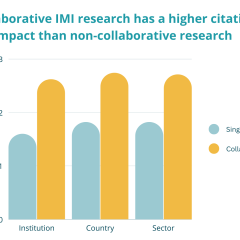
A study of scientific publications from IMI projects shows that collaborative papers, with diverse authorship, perform better than non-collaborative papers.

PharmaLedger's use cases are designed to build the case for the wider adoption of blockchain within the pharma industry.
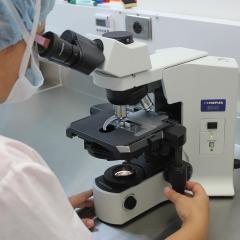
Bigpicture has uploaded the first datasets to its platform, which aims to apply artificial intelligence to the field of pathology.

Digital technologies in mental health care, advanced therapies for rare diseases, and improving hospital care are among the topics pencilled in for IHI’s next calls for proposals.

IMI project H2O has launched its first health outcomes observatories, in the Netherlands, Spain and now Austria.

IMI project HARMONY is proposing a new, more accurate way of assessing the prognosis of patients with multiple myeloma.

Dr Hugh Laverty has taken over as interim Executive Director at the Innovative Health Initiative (IHI), following the departure of Dr Pierre Meulien.

As Pierre Meulien completes his 7-year term as Executive Director of IHI, he reflects on how the research and innovation process has changed and will continue to undergo rapid...

IMI tuberculosis project TRIC-TB is using a novel approach to boost the efficacy of existing TB drugs.

Projects can often help each other reach their goals, as demonstrated by the IMI projects IMI-PainCare and EQIPD. Together, they are helping to bring better approaches for those...

Through the States Representatives Group (SRG), Member States provide vital input into the direction of IHI, as SRG chair Martha Cahill explains in this interview.
The joint undertakings are about creating public-private partnerships (PPPs) – and IHI is no exception. In an interview, the European Commission’s Irene Norstedt, chair of the...

The Innovative Health Initiative (IHI) has launched its first calls for proposals, with topics on diseases such as cancer, cardiovascular disease and neurodegenerative diseases, as...

Respiratory syncytial virus – also known as RSV – may not be a widely known disease, yet its impact is significant. It can lead to serious chest infections and causes over 100 000...

Taking patient preferences into consideration when developing a therapy would seem common sense. Yet it is only relatively recently that consultation has become formalised. IMI’s...
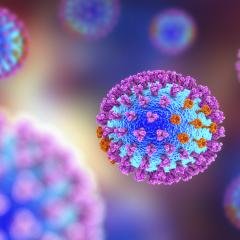
For the majority of people, vaccines have always been a part of our lives; we didn’t think about how they are developed or the diseases they control. However, the coronavirus...

Pregnancy should be a time of joy and excitement, although inevitably it is also one of apprehension and concern. Mothers want to be as sure as the can be that they are minimising...

Vaccine potency drops in the elderly and little is known about why this happens. Now European scientists are on a mission to understand waning immunity and to develop strategies...

Treating primary Sjögren’s syndrome poses a particular challenge; the wide range of symptoms has made it difficult to identify what works and what doesn’t. A potential breakthrough...

The COVID-19 lockdown has increased awareness of mental health issues – particularly clinical depression. However, clinical intervention relies on the individual presenting to...
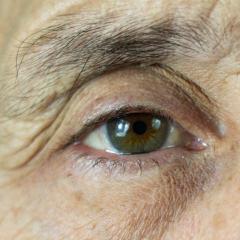
The European Medicines Agency has issued a second Letter of Support to IMI project MACUSTAR for its work on new measures to assess the eye disease age-related macular degeneration...

Cancer, heart disease and neurodegenerative diseases as well as health data and early feasibility studies are the focus of IHI’s first calls for proposals, which are due to be...

COVID-19 vaccines do not raise the risk of developing four rare neurological disorders, but an increased risk was seen in unvaccinated infected people with the disease.

The ERA4Ukraine portal aims to help researchers based in or fleeing Ukraine to find housing and job opportunities, facilitate the recognition of their diplomas, and more.

The newly appointed members of the Innovative Health Initiative Science and Innovation Panel have a wealth of scientific expertise and extensive experience of diverse aspects of...

Scientists from IMI’s iPiE and PREMIER projects used ePiE to predict levels of ibuprofen in four major European river basins.
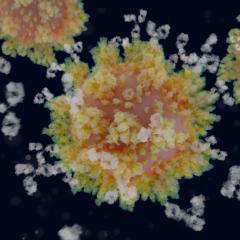
The IMI-funded CARE project helps speed up antibody drug discovery while opening a promising new avenue for antiviral research

IMI project EPAD has made genomic data from its study of the earliest stages of Alzheimer’s disease available to the wider research community.

While the incidence of Alzheimer’s disease continues to grow at an alarming rate, advances in treatment and prevention have stalled. IMI's ADAPTED project worked to better...
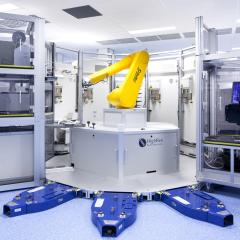
The IMI-funded European Lead Factory hopes to boost charity-funded science and ‘explore unchartered biological territory’

The IMI project IMPENTRI’s trial of a cancer drug has shown promising results after 90 days, confirming its benefits in severe cases.
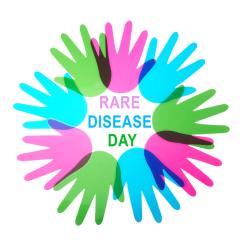
IMI rare disease research focusses on gene therapy delivery systems, newborn screening, platform trials for neurofibromatosis and finding a cure for Fibrodysplasia ossificans...

IMI-funded IMSAVAR reviewed the state of ‘cancer-on-chip’ technology. While promising, problems with manufacturing to scale make them impractical for the moment.

The IMI-funded ITCCP4 project joined forces with US experts in paediatric cancer to reach a much-needed consensus on the best way forward for testing of childhood cancer drugs.
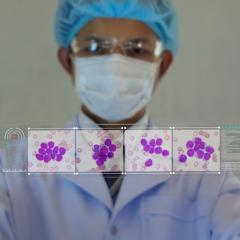
A roundup of some recent IMI cancer progress stories, and cancer-related projects launched in 2021

The IMI-funded ITCC-P4 project’s methodology helped identify some of the best targets in childhood tumours that could be candidates for treatment with adult therapies

The last Innovative Medicines Initiative (IMI) project to launch, FACILITATE will explore how we can return data from clinical trials to participants.

Researchers from COMBACTE-CDI filled important knowledge gaps on the scale of C. diff infections, and sequenced the genomes of hundreds of strains for future researchers

The European Liquid Biopsy Society, an offshoot of the IMI project CANCER-ID, is pushing the science on liquid biopsies closer to clinical reality
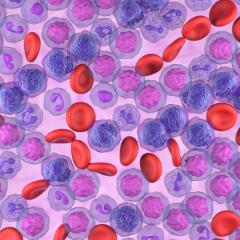
The HARMONY Alliance is using advanced data analysis methods based on artificial intelligence and machine learning to answer questions about haematological malignancies.
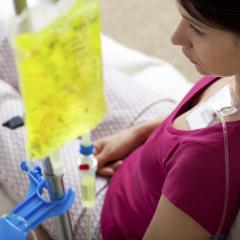
IMMUCAN researchers are using extensive imaging data and statistical analysis to produce detailed descriptions of tumours to figure out which regions should be investigated further...

IHI seeks an ‘outstanding and dynamic professional’ with top leadership, scientific and people skills to take on the role of Executive Director of the public-private partnership...
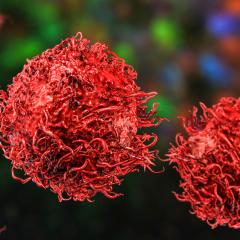
The European Lead Factory has helped identify two drug candidates for cancer treatment that have now progressed to clinical testing.

The IHI Governing Board has formally approved the Strategic Research and Innovation Agenda (SRIA), which will guide IHI’s scientific priorities in the years to come.

The Innovative Health Initiative (IHI) is looking for people who want to represent the scientific and wider healthcare communities in its new Science and Innovation Panel (SIP)...
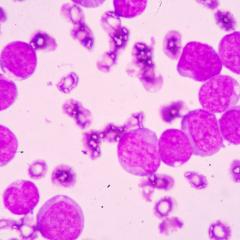
HARMONY’s prototype may offer a more precise way for doctors to predict who should undergo the invasive and risky treatment.

Researchers from RADAR-CNS used deep learning to identity people with COVID19 from heart rate data fed by wearable physical fitness monitors.

EBOVAC2 received a special jury prize at the Étoiles de l'Europe awards for studies on the safety and immunogenicity of the Janssen vaccine in young, old, and HIV-infected people.

The EHDEN project’s recent call for more data made a specific appeal for cancer and immunology records, as well as partners from underrepresented countries
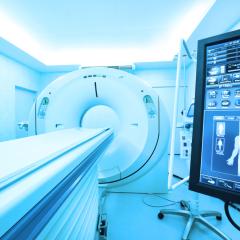
Cancer, heart disease and neurodegenerative diseases are among the themes that could be included in the first calls for proposals launched under the new Innovative Health...
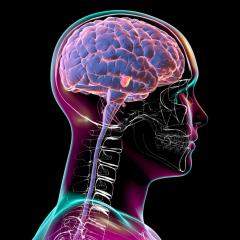
Scientists in PD-MitoQUANT are studying how breakdown in cells’ mitochondrial function is implicated in Parkinson’s disease. Tools developed by SME geneXplain are helping them do...

Research from the IMI projects ENABLE and ELF have discovered a treatment that could reverse antibiotic resistance in some bacteria.

The eight members of the Governing Board represent the Innovative Health Initiative (IHI) public and private partners. The chair of the newly-created board is Irene Norstedt of the...

Some people are at higher risk than others of dying after the common procedure. EHDEN’s modelling was able to identify them

Around half of all patient’s don’t take their treatment as prescribed. New Innovative Medicines Initiative (IMI) project BEAMER wants to find out why and develop guidance to...
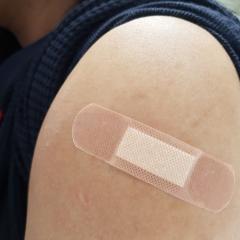
DRIVE found fewer options for older people, and that younger people’s other risk factors play a part in the choice. This data is helping calculate the effectiveness of vaccination...

The new project focuses on respiratory syncytial virus (RSV), an infectious disease that can cause severe illness in young children and other vulnerable groups.
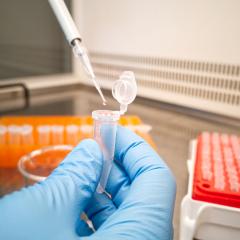
The new European Platform for Neurodegenerative Diseases (EPND) project will set up a collaborative platform that will link up existing sample and data infrastructures.

A large study, part-funded by the Innovative Medicines Initiative (IMI) through the DIRECT, SUMMIT and BEAT-DKD projects, identified a protein in the blood that could predict type...

We welcome entry into force of the legislation creating the Innovative Health Initiative (IHI), a new European partnership for health under Horizon Europe.
The Innovative Medicines Initiative (IMI) organically grew into a powerhouse of international alliances. The new partnership’s multi-sectoral nature means that the catchment will...

PREFER’s proposals have been described by the EMA as a “comprehensive reference document for planning and conducting patient preference studies’’

EHDEN generates evidence for diseases and treatments using a network of nearly 100 data partners and over 400 million electronic health records

Studies of medicines safety and breastfeeding often involve animals. Now IMI’s CONCEPTION project has a plan that could deliver better results while also using fewer animals.
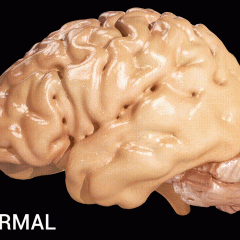
PRISM is in talks with the EMA on the use of data from smartphones and wearables as biomarkers of social functioning in neuropsychiatric disorders.

Most research into autoimmune diseases focuses on the role of the immune system. But INNODIA research underscores the importance of studying the tissues under attack as well

RESCEU have put together the most comprehensive cache of evidence to date on the true burden of a disease that still claims millions of mostly infant victims every year

Over 1 000 people have signed up to the EHDEN Academy, which provides the global scientific community with free educational resources on real world data and real world evidence.

AMYPAD researchers have shown that a ‘visual read’ of PET scans using radioactive diagnostic tracer flutemetamol can go beyond simple yes-or-no determination of the presence of the...

ITCC-P4 are creating a platform of hundreds of childhood cancer tumour models that can be used to test promising molecules

c4c aims to enable hospitals and clinical sites across Europe to become ‘trial ready’ for paediatric clinical trials. We asked the team about the proof of viability studies that...

Thanks to WEB-RADR, a smartphone app is being used internationally for reporting side effects of medicines

MELLODDY have shown that ‘federated learning’ can be used to pool datasets from multiple pharma companies without revealing any valuable secrets

Former IMI patient education project EUPATI is going global with the launch of a national platform in Japan, and the translation into Japanese of its toolbox. The move highlights...
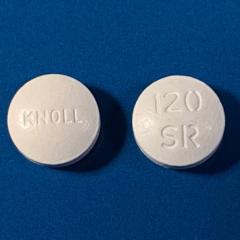
The INNODIA project is launching four diabetes drug studies, designed according to their regulator-approved master protocol
An SME partner in the IMI PHAGO project has filed a patent application with the European Patent Office for an improved protocol for generating high numbers of human microglia...

Researchers from MOPEAD tested different ways to engage patients, including reaching out to suspected early Alzheimer’s sufferers by flagging internet searches like 'forgetfulness'

IMI’s EHDEN project dramatically demonstrated the power of using clinical data in research by replicating, during a five-day ‘study-a-thon’, the results of a systematic review...
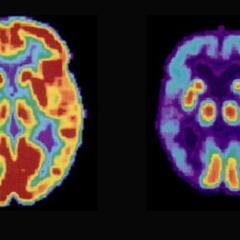
The PHAGO project has identified two genes that might have a significant impact on Alzheimers disease development and progression.

IMI’s IMIDIA project set out to study the function of a certain type of cells found in the pancreas which, when malfunctioning or weak, are thought to cause diabetes. We spoke to...
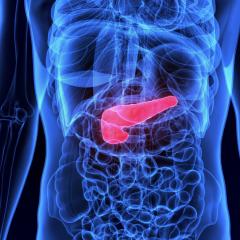
IMI's RHAPSODY project researchers have split type 2 diabetes into subgroups and are working on a tool to personalise treatment for the disease. Their aim is to help patients get...

New treatments must be tested in clinical trials to ensure they are safe and effective. IMI's EHR4CR project has enabled scientists to find suitable patients by searching millions...

Before SUMMIT started in 2009, ongoing research on diabetic complications in Europe was scattered amongst various countries. Fast forward six years, and Europe – by joining forces...